Murray describes his day in court, where his defense counsel said his case represents the biggest single interference with freedom of speech in the modern history of Scotland.
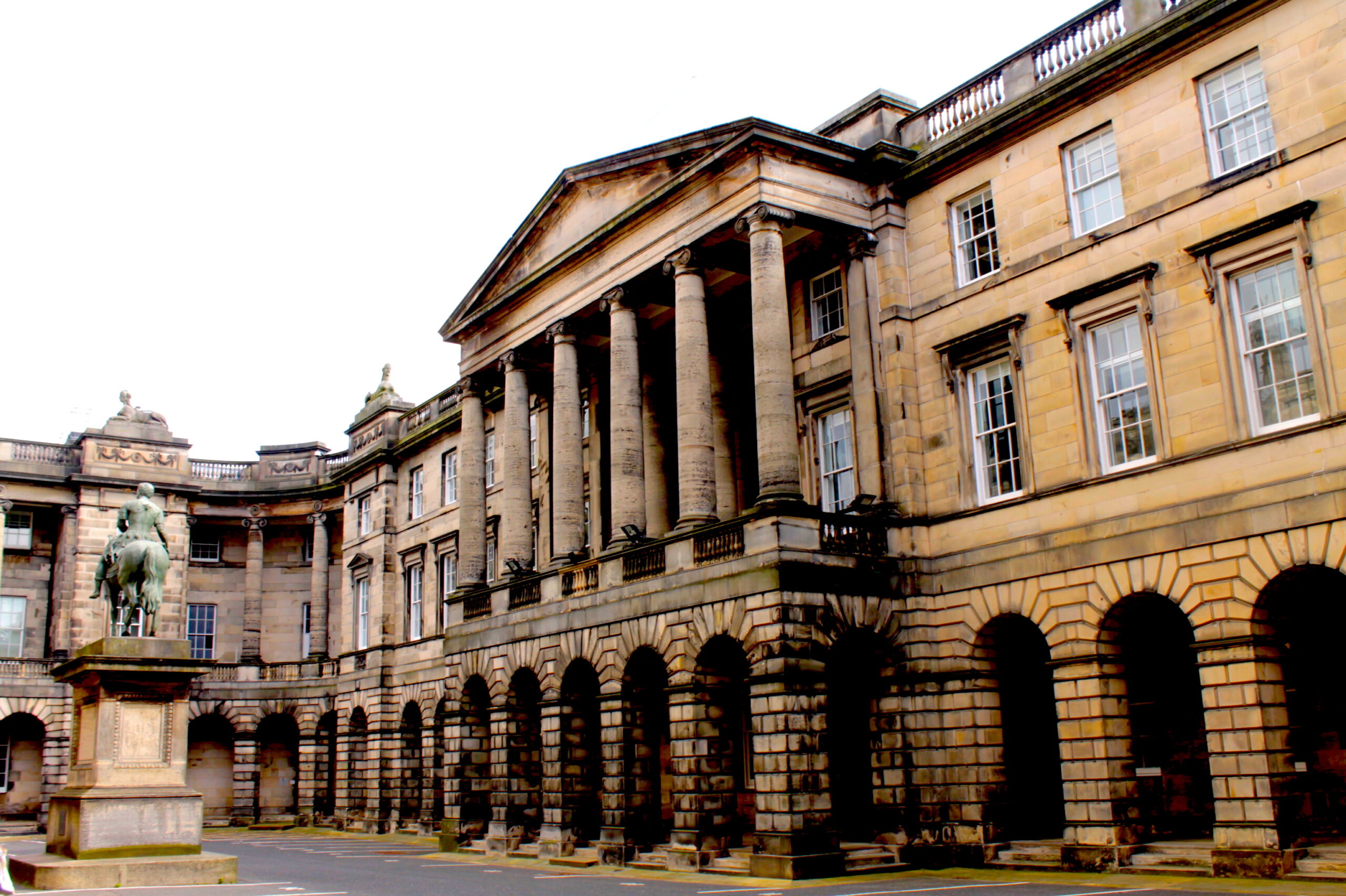
Parliament Square, Edinburgh, facing east, showing the equestrian statue of Charles II and the facade of the Law Courts. (Stephen Dickson, CC BY-SA 4.0, Wikimedia Commons)
By Craig Murray
CraigMurray.org.uk
 On Wednesday, I was the “petitioner” as my appeal was heard in Court No. 1 of the Court of Session by the nobile officium. This sounds like something from Harry Potter, perhaps an annex of the Ministry of Magic, but is actually the Scottish legal system’s appeal court of last resort.
On Wednesday, I was the “petitioner” as my appeal was heard in Court No. 1 of the Court of Session by the nobile officium. This sounds like something from Harry Potter, perhaps an annex of the Ministry of Magic, but is actually the Scottish legal system’s appeal court of last resort.
Here I sat very much as a last resort, getting through the last required hurdle before I can appeal to some judges at Strasbourg with no part in the Scottish Establishment.
Five judges presided, headed by Lord Carloway, the bulldog-jowled lord justice general. To his left sat the tall figure of the kindly looking and bespectacled Lord Woolman, and further left Lord Matthews, who looked so strikingly like an old drinking friend of mine from Dundee, that I kept being disconcerted it wasn’t him. To Lord Carloway’s immediate right was Lady Paton, a bright-looking lady, who had an air of intense concentration and took copious notes. On the far right, the bench was completed by Lord Pentland, very engaged, constantly leaning forward, moustache bristling, as though itching to do all the talking himself. Which from time to time happened.
All wore Gilbert and Sullivan costumes and long wigs that looked frightfully uncomfortable. I felt for them.
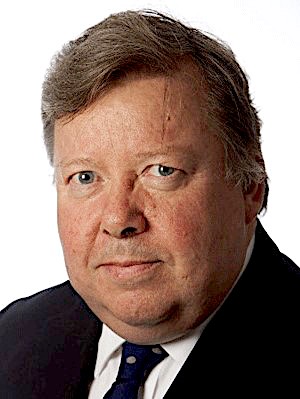
Colin John MacLean Sutherland/Lord Carloway, president of the Court of Session, 2021. (Judiciary of Scotland, Wikimedia Commons)
Proceedings started one hour late. Lord Carloway opened by apologizing to the court. The case had been delayed, Lord Carloway stated, because the bench had received unexpected intimation from the Scottish government that a cabinet minister was coming to see them on an important matter. They had therefore had to delay and meet the minister before starting the hearing.
That is what Lord Carloway said. I faithfully report it. He did not say the cabinet minister’s visit had any connection to my case. He did not say it had no connection to my case. It might have been about judicial appointments, refurbishing courts or Covid restrictions, for all I know. Urgent enough to cause an unscheduled cabinet minister to dash, and justify a delay to the hearing.
Roddy Dunlop QC, dean of faculty (which is a big deal among Scottish lawyers, head of the profession) then arose to present my case. Dunlop has a delivery of relentless logic, driven home by piercing blue eyes, but disconcertingly has a haircut which must entail going into the barber and saying “Cliff Richard circa 1963, please.” Dunlop’s horsehair wig has to perch behind the quiff.
Dunlop had been planning to speak for two hours, but interruptions from the bench were in the event so constant that he spoke for well over three. I published the written submission he had put in, and do urge you to read it — it is more entertaining than you might imagine. I shall not repeat here points he made from the written argument, except where necessary to explain a judicial intervention.
Unique Case
He opened by saying that this was a unique case. We knew of no precedent in Scotland for a journalist ever having been jailed for contempt of court. He then went on to say nice things about me, detailing my diplomatic career and positions I had held of great responsibility. He said that I had become a whistleblower, revealing terrible abuses of torture and extraordinary rendition, and in that respect had given evidence in person before committees of the Westminster Parliament, European Parliament and Council of Europe.
The bench looked to me particularly unimpressed by this; I am not sure they like whistleblowers.
Roddy Dunlop went on to say that I was a journalist, who had published articles in many mainstream media newspapers, but whose output was mostly published on my blog. That did not however make me any less of a journalist. I was fulfilling the role of a “public watchdog” on matters of public interest, as defined in judgments by the European Court of Human Rights.
I had a genuine belief, which I still held, that Alex Salmond had been the subject of a plot to prosecute him on false charges, and I had an Article 10 right under the European Convention on Human Rights to publish that, as a matter of the highest public interest. That had to be the starting point for considering this case.
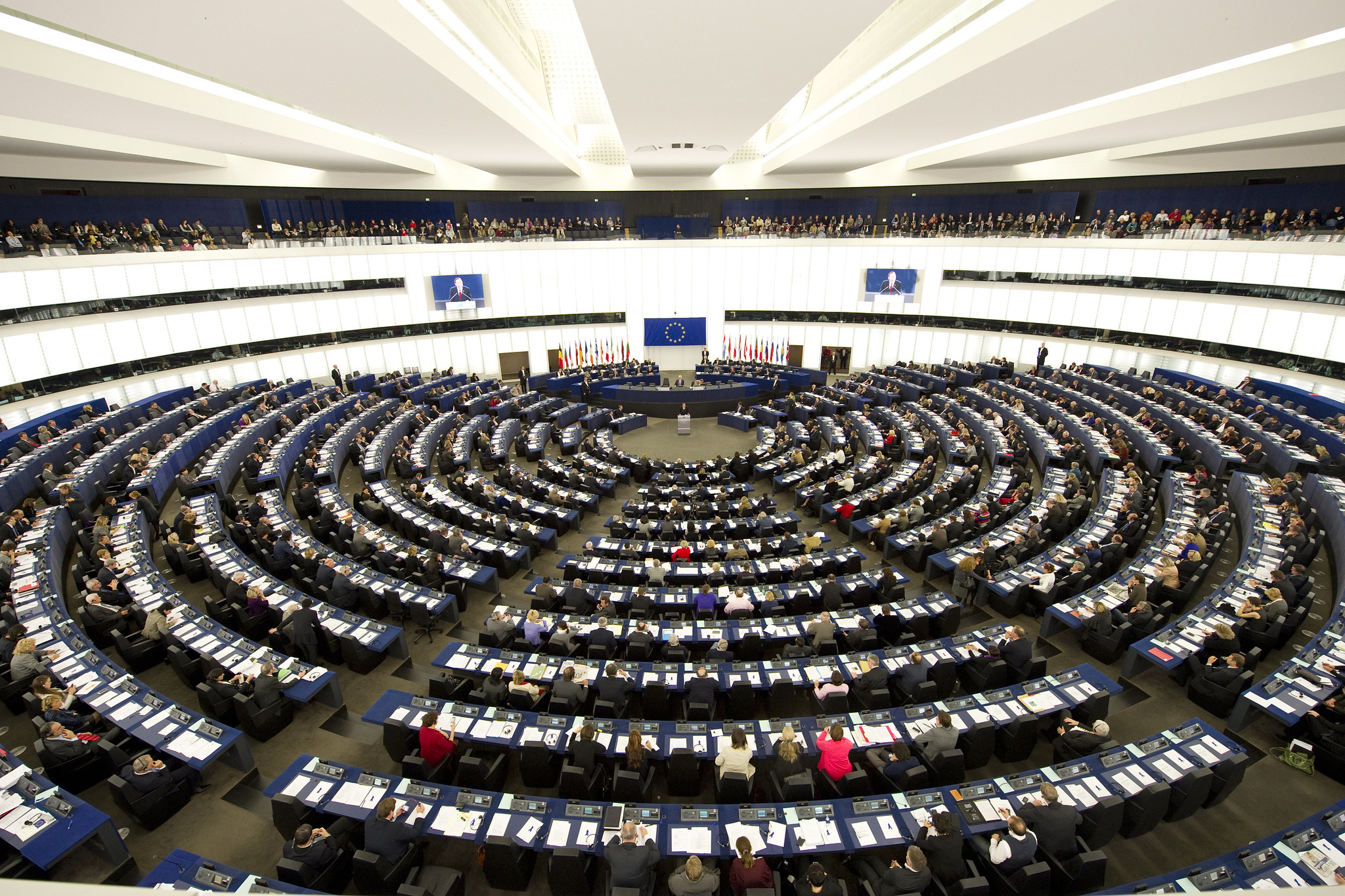
Oct. 19, 2010: European Parliament in Strasbourg, France, as Secretary-General Ban Ki-moon addresses the Parliament at its 60th anniversary commemoration of the European Convention on Human Rights. (UN Photo/Eskinder Debebe)
Both Lord Carloway and Lord Pentland queried whether I could be considered a journalist. Dunlop said that the ECHR case he quoted specifically included bloggers as enjoying the same protection as “public watchdog.”
Dunlop then argued that the test of strict liability in the Contempt of Court Act applies exclusively to publication of information which could interfere with a trial; it specifically does not apply to breaching an order on identification, where on the contrary there has to be an element of willful disobedience of the court. He cited the act itself and several cases.
Lord Carloway interjected that the act of publication was itself a deliberate act. That was the intent. Dunlop replied that there was no dispute that the articles were deliberately published; but that was not the same as that they contained intent to identify.
Lord Carloway queried whether this could be true even when the articles were obviously identifying.
Dunlop said yes, intent was crucial. Otherwise, if for example a protected complainer stated that they had been assaulted in a taxi on a certain date, and subsequently someone posted the taxi receipt online as routine public accounting for expenses, that person would be liable for jigsaw identification despite having no intent.
Lord Matthews asked how the court could know if the receipt had been posted maliciously.
Dunlop then moved on to the second ground of appeal, that the court should not have disbelieved the evidence given in my affidavit without cross-examining me and giving me a chance to answer questions on which they had any doubt. He described this as necessary to a fair hearing and natural justice.
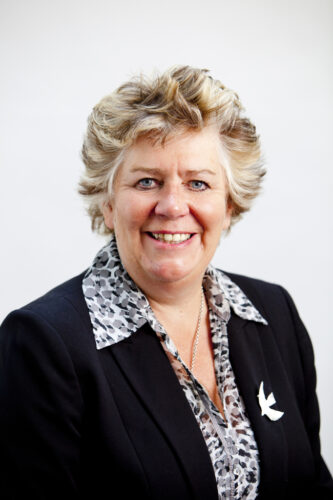
Leeona June Dorrian/Lady Dorrian, 2016. (Court of Session, Wikimedia Commons)
Dunlop referred to Lady Dorrian’s judgment, which stated that evidence in my affidavit cast doubt on my claim to have no intent to reveal names. Dunlop stated that was far from a finding beyond reasonable doubt that I had intent to reveal names. The judgement had therefore not found intent to the criminal standard required in law.
Lord Carloway said the Court had no evidence before it that my affidavit had ever been accepted by the court as evidence at all. There was no joint minute to that effect, and there should have been. Dunlop said that indeed it would have been better if there were a joint minute, but that could hardly be held to be the petitioner’s fault. Lord Carloway asserted twice more that there was nothing before him to indicate my affidavits formed evidence in the case, and Dunlop repeatedly asserted that plainly they were evidence. Not to cross-examine was the Crown’s choice.
Dunlop said I had given this evidence by affidavit, as was frequently the case nowadays. My senior counsel had then informed the court that I had nothing to add but was available to answer any questions from Crown or Court.
Lord Carloway said that offering to answer questions was not the same as submitting to cross-examination. Dunlop said it was the same. Lord Carloway said no it was not; I had not entered the witness box. Dunlop said that there had been no witness box: it was one of the early virtual hearings, I was not in a courtroom, and that may be some of the cause of procedural confusion.
There was then a slight break while I confirmed to Dunlop that counsel had said I was present (virtually) to be questioned by Crown or Court, and both Prentice and Dorrian had stated they did not wish to ask questions. Dunlop confirmed with Crown Senior Counsel Alex Prentice that this was indeed what had happened.
Carloway then said that witnesses were often not cross-examined in civil cases; it did not mean their evidence was accepted. He added that evidence “may be so manifestly untrue as not to require cross-examination.”
(I recall Lord Pentland as saying this, but my notes say Lord Carloway.) Either way, I had the distinct impression they intended this to convey their opinion of my own affidavit as “manifestly untrue” and viewed it as closing the question.
Relentless Negativity
Dunlop seemed somewhat thrown by the relentless negativity from the bench and the suggestion that my affidavit was so manifestly untrue as not to require cross-examination. He concluded that it remained his submission that, where the defendant faced imprisonment, they had a right to have doubts put to them, for them to give an answer that may change the view of the court.
Lord Carloway replied that the Crown’s skepticism of the defendant’s affidavit had been fairly put in the Crown’s written submissions.
Dunlop then moved on to the third ground of appeal, that the Court had adopted too narrow a test in finding that identification had taken place to a section of the general public, such as work colleagues, whereas the correct test in the Act was to the general public, the public at large.
Lord Carloway said that it was obvious that the complainants were all close to the former first minister; therefore, very little extra information could identify them and great care should be taken. What if, for example, the parliamentary committee had been able to identify them? Would that in Dunlop’s opinion be a sufficient test?
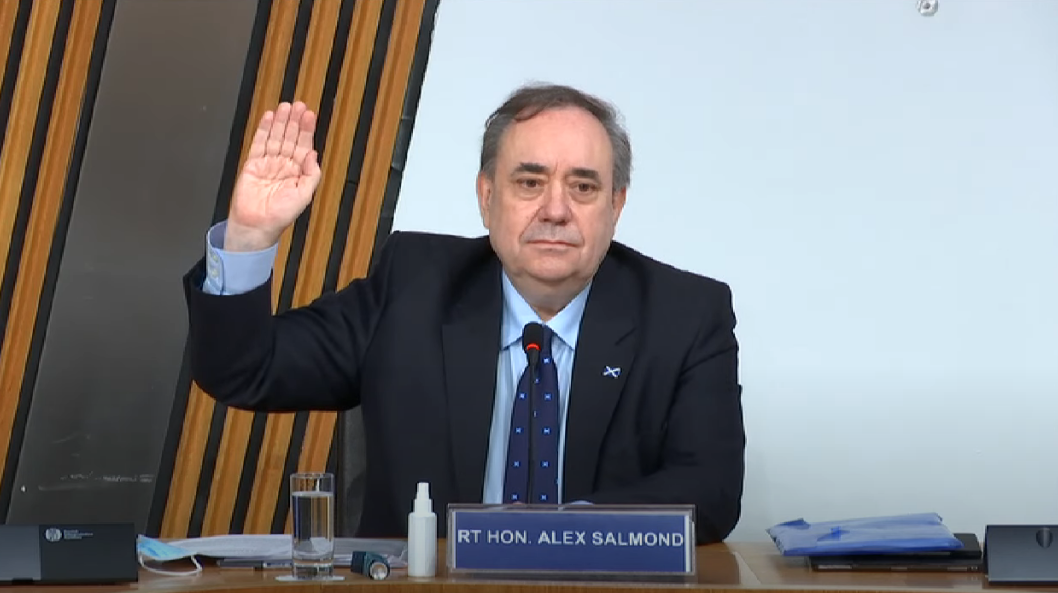
Former First Minister Alex Salmond preparing to give evidence to the Committee on the Scottish Government Handling of Harassment Complaints, Feb. 26, 2021. (Scottish Parliament, Wikimedia Commons)
Dunlop replied it would not. The parliamentary committee were not the general public, and had a great deal of other information available. Dunlop stated that my difficulty had lain in explaining what had actually happened in the Salmond trial, and what Salmond’s defense was, while still protecting the identities, as I had explained in my affidavits.
Carloway replied that the mainstream media appeared to have no difficulty in covering the trial without publishing identifying information. Dunlop said that he would question that. The mainstream media published similar information to the petitioner. Dani Garavelli in particular had published a great deal of identifying information. Yet none of these were prosecuted.
Dunlop had said the unsayable. The judges had all displayed simultaneous physical reactions to this, which in the nearly empty courtroom was particularly noticeable.
Lord Carloway said that Dunlop had said this case was unique. That was because the mainstream media knew how to avoid committing contempt. That is why there were no instances of the mainstream media being prosecuted for jigsaw identification. Lord Pentland reiterated that the reason no mainstream media were prosecuted was because they understood the law.
And at this point we broke for lunch.
After lunch, we reverted to the question of whether I ought to have been cross-examined before being disbelieved, on which Dunlop had found another precedent, which plainly said so, during the lunch break. Lord Pentland stated that it was common practice for a witness not to be cross-examined and then for their account to be dismissed as incredible. Lord Carloway said that it was frequently the case in criminal cases that complainers were not cross-examined by the defense on the grounds their evidence had no weight.
‘The Proper Test?’
We then went back to the question of what was the proper test for identification. Lord Woolman observed it was “a tricky one.” He asked Dunlop what then the proper test should be? This struck me as the first open question asked of Dunlop, not phrased in terms of overt hostility.
Dunlop replied that the proper test should be whether, in combination with material that was already fully in the public domain, somebody had willfully published the last piece of the jigsaw in order to enable identification.
Dunlop went on to give two examples. In the first, he stated that in their open and public opinion on whether my petition to the nobile officium was eligible, the court had stated that I published that a complainer had been nominated to a named parliamentary constituency. This was inaccurate. Had I published that, and had the complainer in fact been nominated, we accepted it would indeed have run a grave risk of identification to the general public. What I had in fact published was that she had been – unsuccessfully – seeking nomination. That fact was not available to the general public and only known to a small number of people within her own party.
I cannot explain the second example Roddy gave without repeating information Lady Dorrian found to be identifying. It was of a similar nature in relating to information only a very small number of people would know and which the public could not find. Lord Woolman asked how this was squared with Google. Dunlop replied that information of the class he was describing was not available to a Google search. Dorrian was therefore in error in finding it to be identifying.
Dunlop then moved on to his fourth ground, that of the European Convention on Human Rights Article 10 right to freedom of speech. Dunlop said that this case represented the biggest single interference with freedom of speech in the modern history of Scotland. There was simply no precedent for jailing a journalist like this. Somebody with no criminal record and a history of public service, fulfilling a public watchdog role, had been jailed for eight months. Despite having a heart condition and a weeks old baby.
“Dunlop said that this case represented the biggest single interference with freedom of speech in the modern history of Scotland.”
Lord Pentland intervened to say that this could be because there was no precedent for the committing of such a large contempt. It was also in the unique context of the Salmond case, in which there was unprecedented public interest and therefore unprecedented need to protect the complainers. That would explain the unique consequences.
Dunlop said that to jail a journalist must be necessary in law and consistent with democracy. The law must also be foreseeable. It was impossible for a journalist to know what pieces of the jigsaw might be known to a small group of people, and therefore to know if he was providing the last piece. Lord Pentland replied that was why extreme care must be taken. Dunlop said the care could become so extreme as to have a chilling effect which made any effective reporting of sexual assault cases impossible.
Dunlop then moved on to his fifth ground of appeal, that many of the identifications found by Lady Dorrian had never been alleged by the Crown or mentioned in proceedings; so the defence had no chance to rebut them. This was heard in comparative silence.
The Crown then opened, and Alex Prentice QC, a dry and inoffensive man, spoke very briefly. He said that the Crown had already set out its position in its written submissions (I am told I am not allowed to publish these). The Crown had alleged intent against me and the court had plainly found intent, so the question of strict liability did not in fact arise.
Lord Pentland came in to help Prentice by suggesting a precedent case to him, not in the bundle of authorities, which indicated intent was not required. Pentland asked if that case might be useful to support his assertion that there was no need to prove intent. Prentice agreed, and said “we” had been discussing that very case over lunch. It was not plain to me who “we” were.
On the question of my not having been cross examined, Prentice stated that he had personally held a number of meetings with my then queen’s counsel, John Scott, to discuss evidence. These meetings were covered by confidentiality, but the Crown had “certain concerns” about my giving evidence. It had therefore been agreed between the counsel that my affidavits would be entered, and I would not be cross-examined: but this did not mean that my evidence was accepted.
I was much startled to hear that.
Prentice stated that on what was the correct test for identification, the Crown had alleged that I had embarked on a publication of a course of articles designed, when taken together, to reveal identities to the general public. This was accepted by the court and no question therefore arose. Furthermore, the Crown had alleged that, taken together, all of the complainers were identified by all of the articles combined. It was therefore not necessary for the Crown to have cited each individual example of identification.
Lord Pentland said that contempt of court was a summary procedure anyway so there was no need to consider these questions.
Theoretically what happened next was that Dunlop had a chance to rebut. However, he was so interrupted and overwhelmed by the bench, that my notes at this point seem to consist almost entirely of what the judges said.
“Theoretically what happened next was that Dunlop had a chance to rebut.”
Lord Pentland said that Dunlop had claimed it was unique for a journalist to be jailed, but the circumstances of the Salmond case are unique, and it was essential that the identities of complainers in sexual assault cases be protected, for fear of deterring other victims from coming forward.
Dunlop said we had always accepted that, and the Salmond case was also of unique public interest.
Lord Pentland said that we were looking at a course of conduct by a person who Dunlop had stated was a highly educated man who had held responsible positions. But these were aggravating factors not mitigating factors. He said that the need to protect identities had been stressed to the public and reiterated “Mr. Murray’s previous positions of responsibility are an aggravating factor in his conduct.”
Dunlop cited an European Court on Human Rights ruling which stated that journalists should not be imprisoned, except in extreme circumstances such as hate speech or incitement to violence. In this case, the appropriate punishment would have been a fine.
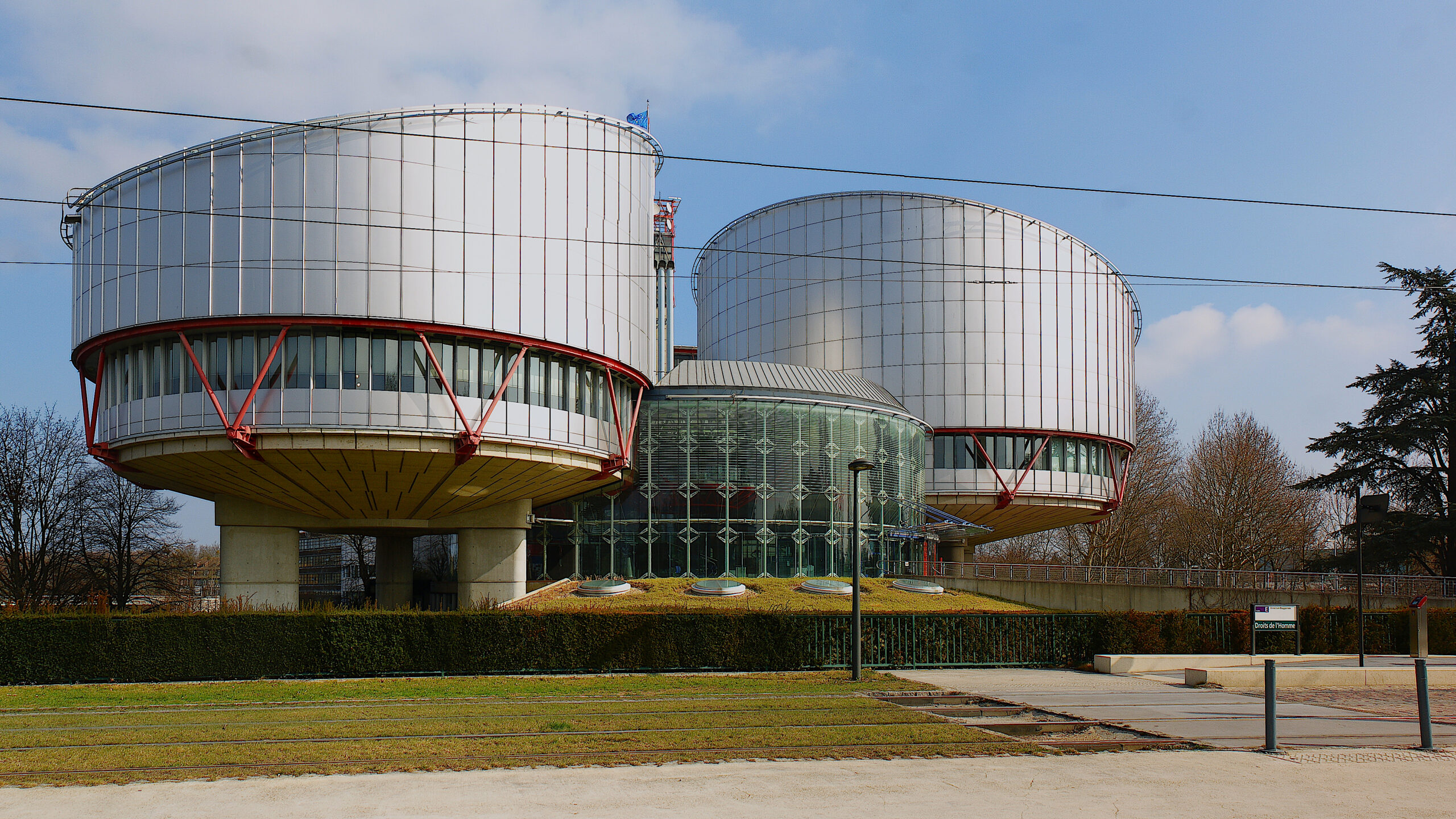
European Court of Human Rights in Strasbourg, France. (CherryX, CC BY-SA 3.0, Wikimedia Commons)
Lord Pentland said that this case was analogous to hate speech and incitement to violence; and my sustained campaign to reveal the identities of these women could indeed have incited violence or social media hate against them. Dunlop said no such thing had happened and there was certainly no such intent.
Lord Matthews said that the protection quoted in the ECHR case extended to investigative journalism and this was not investigative journalism. It said this applied to press offences, but was this a press offence? Was I a journalist?
Lord Woolman asked whether, if I could be called a journalist, did that mean just anybody could be a journalist who published on social media?
Dunlop replied, anybody who was fulfilling the role of a public watchdog, according to the European Court of Human Rights. Lord Pentland said that particular judgement appeared to refer to NGOs rather than individuals. Dunlop said it specifically included bloggers. Pentland said he thought it mainly meant NGO’s but they would look at it.
Lord Carloway said that it was not plain this was a press offence. In mainstream media cases, the contempt was always acknowledged and an apology proffered. However in this case, a key factor in the sentence had been my “total and utter lack of remorse,” which continued.
Dunlop said it was my position that I had not intended to identify anybody. Lord Pentland said that it was common practice for sentences to be increased for lack of remorse from those who insisted on protesting their innocence after conviction.
Dunlop said my position was that I never intended to identify anybody; I had attempted to protect identities and I believed I had succeeded in that. Nobody had in fact been identified. But I would indeed be very remorseful if identification had occurred.
Carloway asked, in a tone of incredulity, if we were saying that nobody had been identified as a result of my articles. Roddy Dunlop said that was indeed what we were saying. There had never been any credible evidence that identification had occurred. Carloway said he would find that most unlikely.
And that was it.
My Best Shot
That is my best shot at a fair description of today in court, leaving out anything said that could identify a witness in the Salmond case. It is of course my perception, and a distillation of a full day, and in the circumstances I can hardly be unbiased. It is not my fault the court excluded the public from attending and so limited your access to other perceptions.
We will get a written judgement in probably around a couple of months. Of course, judges can be testing an argument or playing Devil’s advocate. But my honest perception was of real hostility from the court. I think you will find the above is a fair guide to what the judgement will say. My perception is that judges’ hearts were worn on sleeves today.
The attempt to claim that my affidavits have never been accepted as evidence in the case is chilling.
My affidavits, of course, state the grounds of my belief that not only was there a plot against Alex Salmond, but that the politically corrupt Scottish prosecutorial system was a part of the plot. They list the documents I had seen, in the possession of the Crown and which the Court refused to disclose, that led me to understand the plot. They name Salmond’s accusers and explain their roles (which part I have never published), and outline the roles of Peter Murrell and Sue Ruddick. The links to First Minister Nicola Sturgeon are outlined.
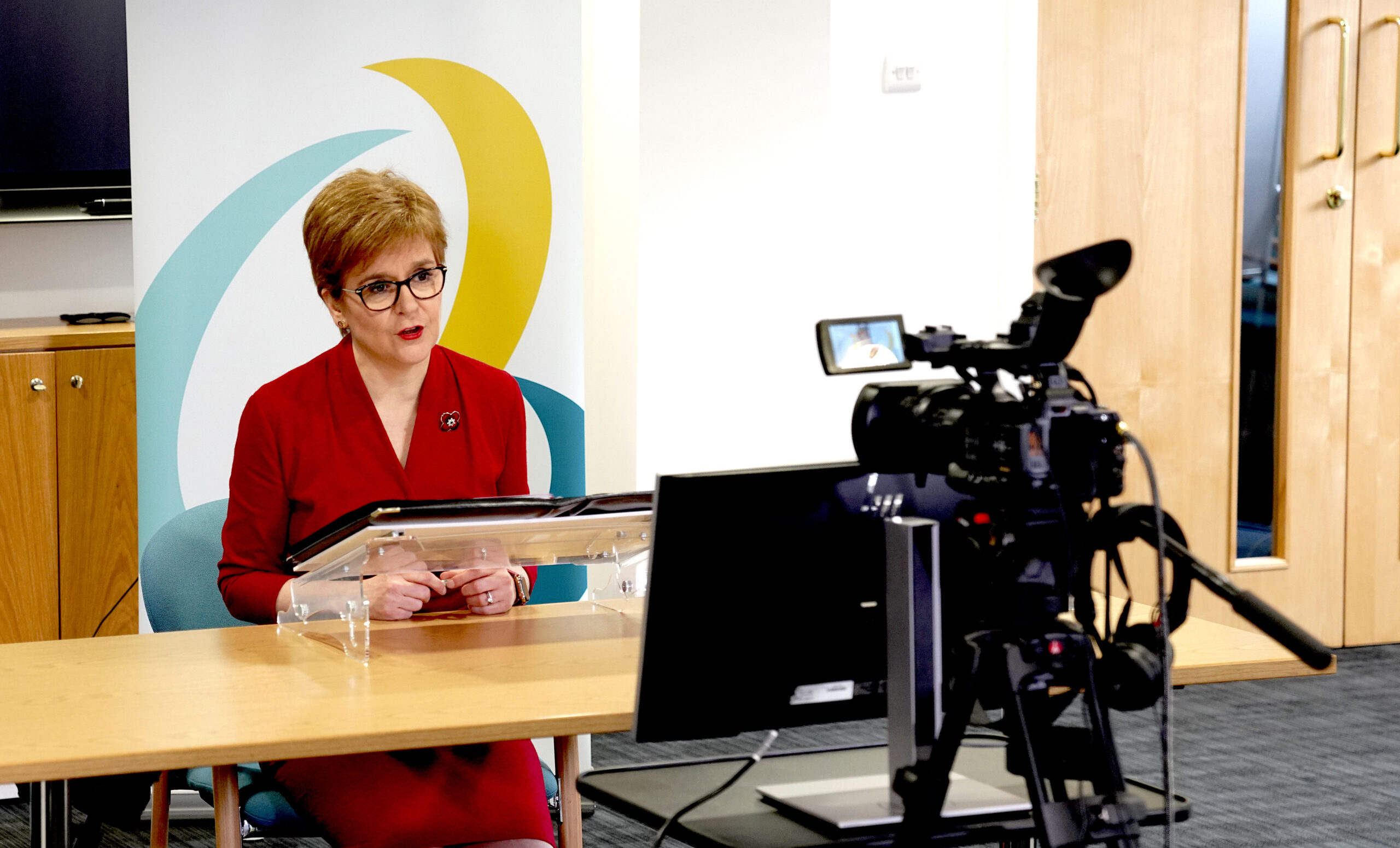
First Minister Nicola Sturgeon, Nov. 6, 2020. (Scottish Government, CC BY 2.0, Wikimedia Commons)
It is therefore unsurprising that the Crown had “serious concerns” about my evidence and did not want to cross-examine me in public and give me the chance to justify it.
It is more surprising that there is now an effort to claim my affidavits do not form part of the case at all. Carloway stoutly maintained they were not evidence. When we go to the European Court of Human Rights, those affidavits will be seen by judges who are not a part of the Scottish establishment. But if the affidavits were never evidence in the case, then they cannot be presented at Strasbourg.
How the judges can maintain my affidavits, given under oath, were not evidence I do not know, especially as they are repeatedly referred to in Lady Dorrian’s judgement. How could the court judge evidence which did not exist? I have never had any expectations from this court, but this is a key point I shall be looking for in this judgement.
I am afraid that I am going to have to renew my appeal for funds to help with the legal costs. Fighting these kinds of actions is simply crippling. Your dedication to freedom and support have so far saved me from personal bankruptcy, but we now need to raise a further £80,000 immediately – of which we readers have very kindly donated over half since I made the renewed appeal two days ago.
Craig Murray is an author, broadcaster and human rights activist. He was British ambassador to Uzbekistan from August 2002 to October 2004 and rector of the University of Dundee from 2007 to 2010. His coverage is entirely dependent on reader support. Subscriptions to keep this blog going are gratefully received.
This article is from CraigMurray.org.uk.
The views expressed are solely those of the author and may or may not reflect those of Consortium News.

Such a miserable exercise in lawyer scamming by the judges, to rationalize prejudiced decisions.
They spend their lives inventing rationales for whatever conclusion is most beneficial to themselves.
They have little or no concern for truth or justice: only scams that someone might be fooled by.
There must be no tricky violations: either the identities were deliberately made clear to everyone, or the reporter did not reveal them.
There must be a cautioning mechanism: the boundaries of offense must be very clear.
The less clear that the reporter was a professional journalist under public standards of law, the less one can presume such knowledge.
Where the reporter did not outright state the names, they have not been revealed unless anyone can easily see them.
There should also be publicly-funded top-notch defense lawyers.
No such prosecution should require such heavy funding.
Whew! An excellent peroration showing why I have an utter contempt for lawyers and legal systems.